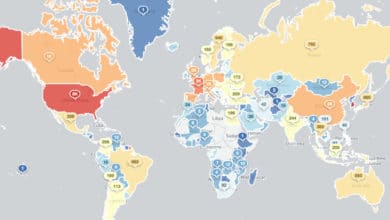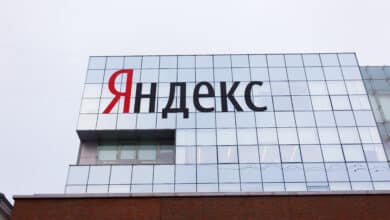
As the Funke Mediengruppe reports, cyberattacks on the websites of German media companies are also on the rise in the midst of the war in Ukraine. These have been increasingly attacked with malware in recent days, but the background is still unclear.
Cyber attacks on German media houses
The Funke Mediengruppe, headquartered in Essen, has registered increased cyberattacks on its websites in recent days. First, the live blog of the Westdeutsche Allgemeine Zeitung (WAZ), which belongs to the media group and covers Russia’s war in Ukraine, reported on the attacks on Friday evening. It said “The websites of Funke Mediengruppe’s daily newspapers, magazines and reach portals have been attacked in several waves by so-called bots since the morning.”
The social media sites of the newspapers and media belonging to the group have also already been hit by several bots, which, for example, provide an increase in loading times through spamming. The media group says it has already initiated measures to defend against further attacks.
Other media houses affected
In addition to the regional newspapers of Funke Mediengruppe, other media houses have now also been affected by the large-scale cyber attacks. Among them is the Frankfurter Rundschau (FR), part of the Ippen Media network, whose social media sites were also attacked by bots.
FR Editor-in-Chief Thomas Kaspar tweeted already on Thursday that “pro-Putin trolls and bots are flooding the comment columns of our social media presences.” The deletion limit for comments is 10,000 comments per day, which was already exceeded on Thursday. Thus “we can no longer cope with the massive attack,” Kaspar writes further.
Spam comments are on the rise
In a extensive article, the FR editor-in-chief addressed the cyberattack against the Frankfurter Rundschau a day later. In it, he also registered an increase in comments: “Since the shift of troops to the border of Ukraine, the volume of comments on our website and in our appearances in social media is growing noticeably.”
All comments in which the word “Ukraine” appears are affected, he said. A pattern is recognizable, because the mostly male users often comment in the same way and create new accounts especially for the posting. Obviously, the comments all belong to the pro-Russian disinformation campaign.
Due to the sudden increase within the comment function, this creates a significant additional workload. This is because the postings have to be additionally removed and put a strain on the queue. In the short term, this led to an overload of the delete function. “The digital war had achieved its goal,” Kaspar continues.




No replies yet
Neue Antworten laden...
Neues Mitglied
Beteilige dich an der Diskussion in der Basic Tutorials Community →